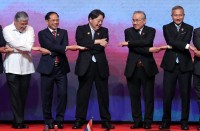PHL high court clarifies its role as it pointed out lack of justiciability of matters raised by senators, other petitioners who “have no standing to file” suit on PHL ICC withdrawal
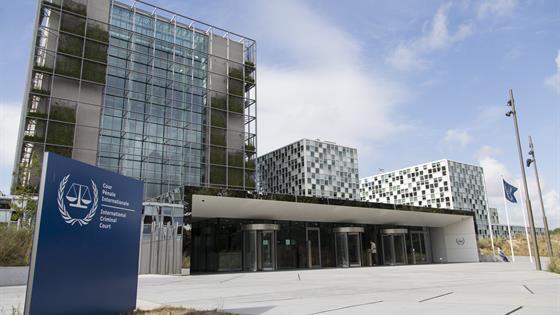
(Eagle News) – The Supreme Court unanimously dismissed for being “moot” the various consolidated petitions seeking to reverse the withdrawal of the Philippine government from the International Criminal Court (ICC) or the Rome Statute.
In its 101-page decision penned by Associate Justice Marvic Leonen, the high court also noted that the consolidated petitions filed by various senators and groups were dismissed because the petitioners “have no standing to file their suits.” It also noted that they failed to demonstrate “justiciability” for the high court to act upon it.
The Supreme Court, in its decision, explained that this matter was “not within its purview”, and that the Philippine government’s withdrawal from the ICC was “submitted in accordance with relevant provisions of the Rome Statute.”
“The President complied with the provisions of the treaty from which the country withdrew. There cannot be a violation of pacta sunt servanda when the executive acted precisely in accordance with the procedure laid out by that treaty,” it said in its decision which was dated March 16, 2021, but only uploaded on July 21.
In its ruling, the high court stressed that what the petitioners led by Senators Francis “Kiko” Pangilinan and Franklin Drilon are asking was a relief that the Supreme Court cannot grant as this was already beyond its “finite authority.”
-Supreme Court not an int’l court-
“This Court is not an international court. It may only rule on the effect of international law on the domestic sphere. What is within its purview is not the effectivity of laws among states, but the effect of international law on the Constitution and our municipal laws. Not only do petitioners pray for a relief directed at a discretionary function, but the relief they seek through this Court’s finite authority is ineffectual and futile. Ultimately, mandamus will not lie,” the high court explained.
The Supreme Court said that it cannot grant the relief that the petitioners are seeking, among which was to declare as invalid the withdrawal in March 2018 of the Philippine government as directed by President Rodrigo Duterte from the ICC or the Rome Statute.
“All told, the consolidated Petitions are dismissed for failing to demonstrate justiciability. While we commend the zealousness of petitioners in seeking to ensure that the President acts within the bounds of the Constitution, they had no standing to file their suits,” the Court said.
“We cannot grant the reliefs they seek. The unfolding of events, including the International Criminal Court’s acknowledgment of withdrawal even before the lapse of one year from initial notice rendered the Petitions moot, removing any potential relief from this Court’s sphere,” the Court’s decision read.
-SC to act only on justiciable controversies-
Leonen, who penned the 101-page decision, explained that the Supreme Court’s role should be clarified “within the constitutional order.” He said that there was a need for the high court “to exercise restraint” in matters that may cause “confusion in the diplomatic sphere.”
“Ultimately, this Court may only rule in an appropriate, justiciable controversy raised by a party who suffers from direct, substantial, and material injury. Once again, we clarify our role within the constitutional order,” the Court said in its decision.
“We take this occasion to emphasize the need for this Court to exercise restraint in cases that fail to properly present justiciable controversies, brought by parties who fail to demonstrate their standing. This is especially true when our pronouncements will cause confusion in the diplomatic sphere and undermine our international standing and repute,” the Supreme Court said.
-Various petitions’ failure on significant procedural grounds-
The Court said that the various petitions filed on the matter “fail(ed) on significant procedural grounds.”
“Petitioners are before us through the vehicles of petitions for certiorari and mandamus under Rule 65 of the Rules of Court, praying that the Philippine Notice of Withdrawal be declared void ab initio, and that the withdrawal itself be declared invalid. They also pray for a writ of mandamus to direct the Executive Secretary to recall and revoke the Notice of Withdrawal, and to submit the issue before the Senate for its deliberation,”
“These Petitions fail on significant procedural grounds. It is true that this Court, in the exercise of its judicial power, can craft a framework to interpret Article VII, Section 21 of the Constitution and determine the extent to which Senate concurrence in treaty withdrawal is imperative. However, it will be excessive for any such framework to be imposed on the circumstances surrounding these present Petitions, seeing as how the incidents here are fait accompli,” the high court explained.
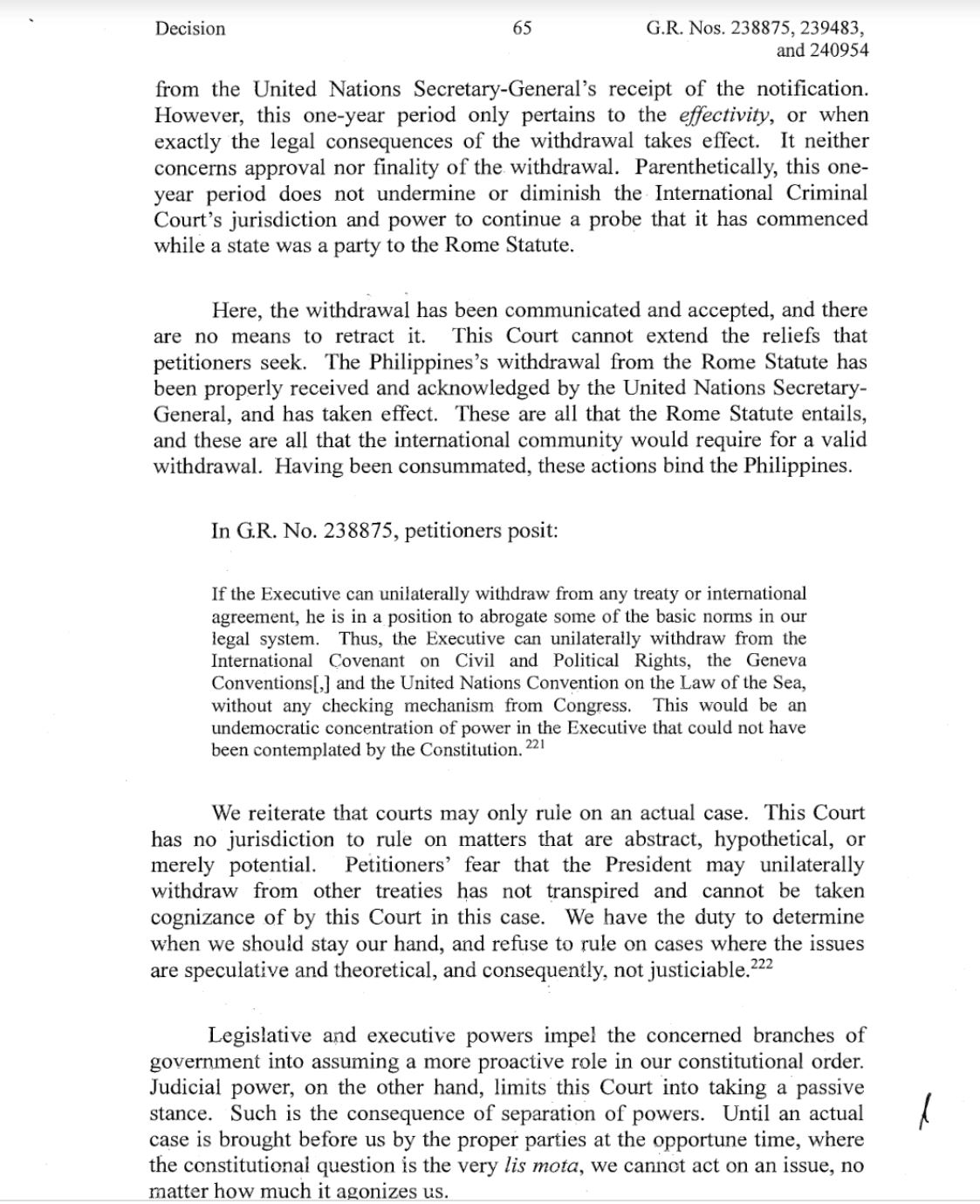
-‘Mere surmises-
As to the petitioners’ claim that the Philippines withdrawal from the ICC would weaken protection of human rights, the Supreme Court said that these “contentions are mere surmises.”
“Ample protection for human rights within the domestic sphere remain formally in place. It is a canon of adjudication that ‘the court should not form a rule of constitutional law broader than is required by the precise facts to which it is applied.’
The Supreme Court also referred to the intention of the petitioners whom it noted wanted “a different political result” from what President Duterte had done in withdrawing from the ICC. But the high court said it cannot veto the President’s actions.
“Neither at issue here is whether a future president may decide to re-enter the Rome Statute and secure the requisite Senate concurrence. It is possible that whatever the results in these cases are, a future administration under a new president can make that decision. Petitioners want a different political result from what the President has done, and so they implore this Court to veto his action, raising serious policy implications in so doing.”
-Exercising restraint in the face of political posturing-
In its decision, the Supreme Court stressed that it “must exercise restraint in the face of political posturing.”
It said it “must anchor its determinations not on political results, but on principles and the text found in the Constitution and law.”
“The most basic of these principles are parameters that determine the justiciability of cases. Judicial office impels capacity to rule in keeping with what the Constitution or law mandates, even when potentially contrary to what a magistrate may prefer politically.”
In its decision, the Supreme Court gave an overview of how the ICC came about and the Philippines’ participation in how it came into being.
It also cited the pronouncements of the Philippine officials who were involved in the call in the United Nations then for the establishment of the ICC.
“From June 15, 1998 to July 17, 1998, the Philippines participated in the United Nations Diplomatic Conference of Plenipotentiaries on the Establishment of an International Criminal Court in Rome. Then Foreign Affairs Undersecretary Lauro L. Baja, the Philippine Head of Delegation, delivered a speech that explained the country’s position, commitment, and historical participation on the establishment of the International Criminal Court,” it said.
-National judicial systems should have primacy-
Among the key points raised by Baja then was on the matter of how the ICC should only complement the “national judicial systems” already in place in a country.
“National judicial systems should have primacy in trying crimes and punishing the guilty. The International Criminal Court should complement those systems and seek action only when national institutions did not exist, could not function or were otherwise unavailable,” said the Court quoting Baja’s summary of points.
“The International Criminal Court’s jurisdiction is ‘complementary to national criminal jurisdictions.’ Complementarity means that the International Criminal Court may only exercise jurisdiction if domestic courts were ‘unwilling or unable’ to prosecute,” it pointed out.
The Philippines announced its withdrawal from the Rome Statute on March 15, 2018, and formally submitted its Notice of Withdrawal through a Note Verbale to the United Nations Secretary-General’s Chef de Cabinet on March 16, 2018. The Secretary-General received the notification on March 17, 2018.
-Completiton of withdrawal-
“For all intents and purposes, and in keeping with what the Rome Statute plainly requires, the Philippines had, by then, completed all the requisite acts of withdrawal. The Philippines has done all that were needed to facilitate the withdrawal. Any subsequent discussion would pertain to matters that are fait accompli,” the Supreme Court decision explained.
“On March 20, 2018, the International Criminal Court issued a statement on the Philippines’ Notice of Withdrawal. The United Nations certified that the Philippines deposited the written notification on March 1 7, 2018. It stressed that while withdrawal from the Rome Statute is a sovereign decision, it has no impact on any pending proceedings.”
“At that point, this Court’s interference and ruling on what course of action to take would mean an imposition of its will not only on the executive, but also on the International Criminal Court itself. That is not the function of this Court, which takes on a passive role in resolving actual controversies when proper parties raise them at an opportune time,” the Supreme Court said in clarifying its limitations.
“In the international arena, it is the president that has the authority to conduct foreign relations and represent the country. This Court cannot encroach on matters beyond its jurisdiction.”
-Senate reso on issue not adopted-
The Supreme Court also observed that the Senate itself failed to adopt the resolution cited by Senator Pangilinan that expressed the “sense of the Senate” on the matter of the Philippines’ withdrawal from the ICC.
“The Senate has refrained from passing a resolution indicating that its assent should have been obtained in withdrawing from the Rome Statute. Senate Resolution No. 289 or the ‘Resolution Expressing the Sense of the Senate that Termination of, or Withdrawal from, Treaties and International Agreements Concurred in by the Senate shall be Valid and Effective Only Upon Concurrence by the Senate,’ has been presented to but, thus far, never adopted by the Senate,” the Supreme Court said.
“Thus, Senate Resolution No. 289 has absolutely no legal effect. Such reticence on this matter means that,’ as a collegial body, and in its wisdom, the Senate has chosen not to assert any right or prerogative which it may feel pertains to it, if any, to limit, balance, or otherwise inhibit the President’s act,” it said.
“The passage of Resolution No. 289 would have been a definite basis on which petitioners-senators can claim a right. However, the Senate itself appears to have not seen the need for it. Thus, petitioners-senators cannot validly come.to this Court with a case that is already foreclosed by their own institution’s inaction,” the high court said in its decision.
“Similarly, this Court should stay its hand when the Senate itself, as a collegial body, has not officially confronted the President’s act. This is in keeping with the limits of judicial review.”
The decision was concurred in by all members of the high court, including Chief Justice Diosdado Peralta.
Among the petitioners who sought to nullify the Philippines’ withdrawal from the ICC are Senators Pangilinan, Drilon, Leila De Lima, Risa Hontiveros and former Senator Antonio Trillanes IV, and the Philippine Coalition for the International Criminal Court.
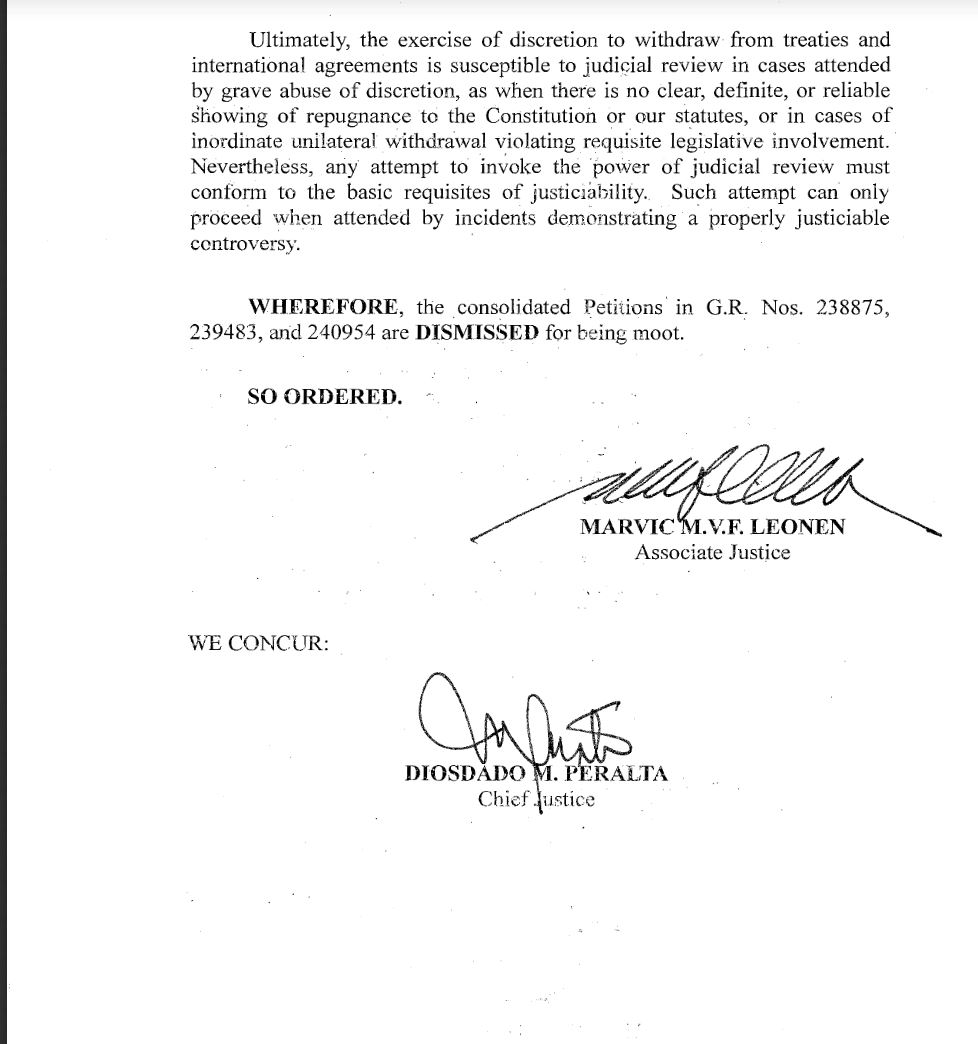
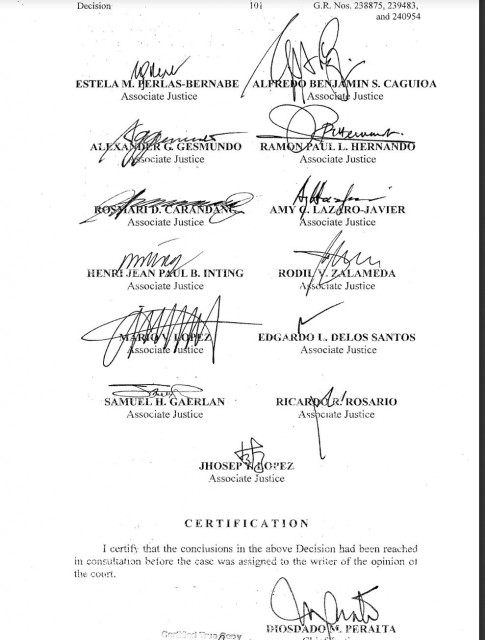
(Eagle News Service)

